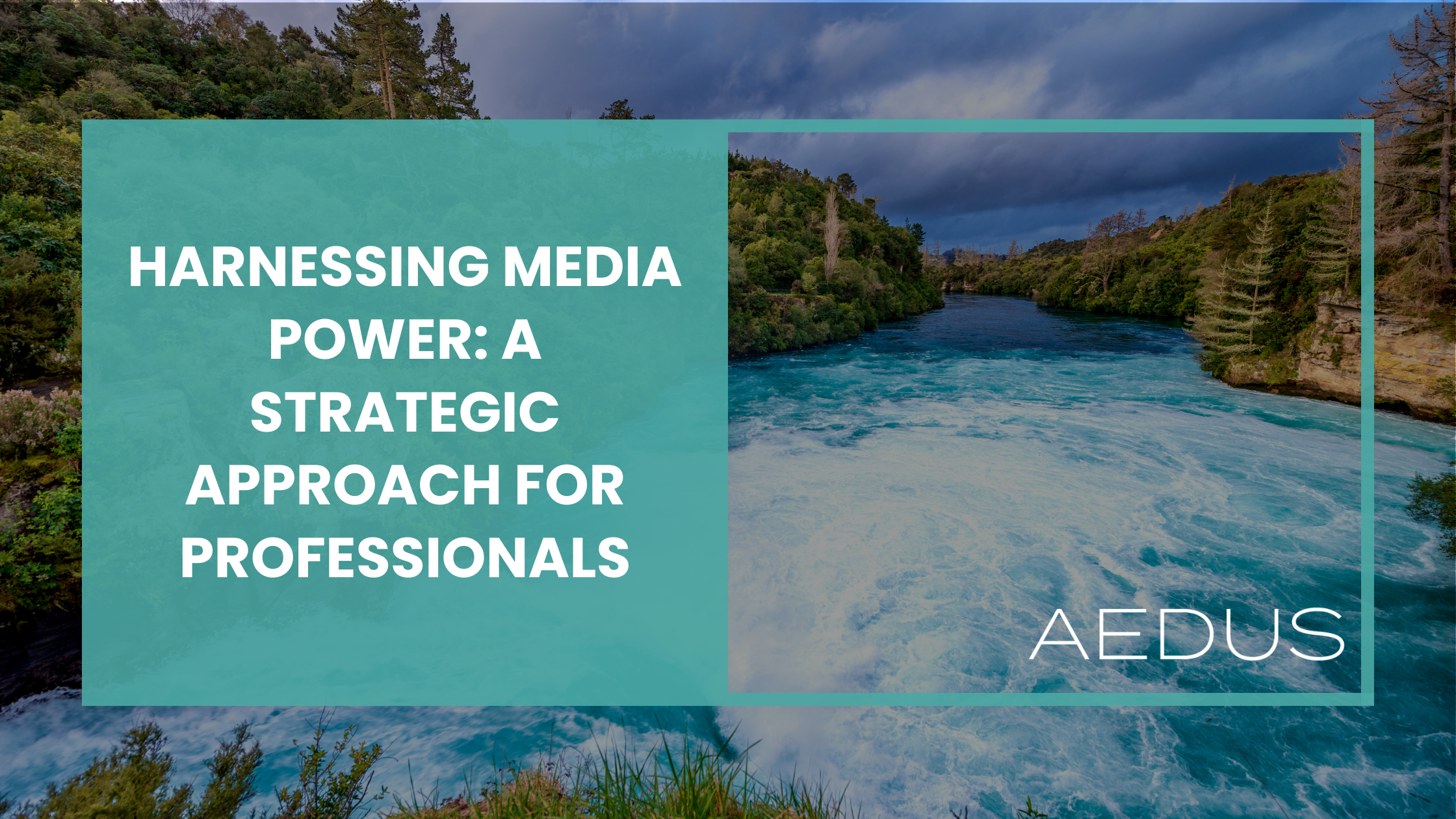Power is like a river: a skilled hand channels it to sustain life, but a careless hand lets it flood and destroy – The cautious use of media in business.
I had to think carefully about writing this blog.
Carefully, because media forms a large part of my work with clients. Whether it’s social, live, print, or online, media is essential to what I do. With the acceleration of technology and the wealth of outlets available, I am a huge advocate for a solid media strategy as part of a business’s growth trajectory. Media, in all its forms, can be transformative. But like a river, media’s power needs guidance. Without care, its force can overwhelm.
In skilled hands, even rough tools create beauty; in careless hands, the finest tool may bring ruin. With the increasing ease of access to media channels like social platforms and podcasts—where barriers are low and anyone can broadcast widely—the potential for mishaps grows. When media strategy is poorly managed, the results can be damaging: messages are diluted, brand trust is compromised, and opportunities are lost. I often hear from clients and partners about stories across industries where a lack of media guidance led to confusion and chaos rather than growth and opportunity. This has made it clear just how beneficial media training is, especially for professionals in high-stakes, public-facing roles—even for those who are already experienced communicators.
Media training is valuable for professionals in fields like consulting, law, finance, healthcare, and technology, where effective communication is essential. Training prepares individuals to navigate complex media environments with poise and purpose. Here’s why it’s so valuable, even for seasoned professionals:
-
Clear and Consistent Messaging
For many professionals, communicating complex information—whether it's a legal concept, financial strategy, or technical explanation—can be challenging. Media training helps individuals simplify and clarify their messages, making even the most intricate topics accessible to clients and the general public. This is crucial for maintaining clarity and ensuring audiences connect with the message, regardless of prior expertise.
-
Crisis Communication
When things go wrong, well-trained spokespeople can make all the difference. Crisis management is about controlling the flow of information and protecting reputations. Media training equips professionals to respond with calm and clarity in challenging situations, minimising harm and helping to steer the narrative back to positive ground. Even experienced communicators benefit from occasional refreshers on these strategies, as the media landscape evolves constantly.
-
Building Trust with the Public and Clients
A strong media presence builds trust. Effective communication conveys confidence, empathy, and authority—qualities that resonate with clients and the public alike. Media training fosters these skills, helping professionals reinforce trust and strengthen client relationships. This can be particularly impactful in high-stakes fields, where trust is essential to professional success.
-
Navigating Social Media and Digital Platforms
Much of today’s communication takes place on social media and digital platforms, where information spreads rapidly. Media training covers the nuances of these channels, helping professionals avoid common pitfalls and ensuring their digital interactions remain effective and consistent with their brand. Even those familiar with social media can benefit from understanding platform-specific strategies that maximise reach and engagement.
-
Handling Difficult Questions or Sensitive Topics
Professionals in public-facing roles often deal with sensitive information or high-stakes issues. Media training prepares them to handle tough questions gracefully, which is especially important in industries where public scrutiny or regulatory concerns are high.
-
Personal Branding and Professional Growth
For those in advisory or consulting roles, media training can help build a recognisable personal brand. A strong personal brand enhances credibility and visibility, opening doors for speaking engagements, media appearances, and other opportunities that elevate one’s professional standing. This is valuable not just for emerging professionals but also for established leaders looking to solidify their public presence.
-
Preparation for Public Speaking or Presentations
Media training often overlaps with public speaking skills, which help professionals perform confidently in interviews, conferences, meetings, and other settings where they represent their brand.
Media training is a worthwhile investment for any professional whose role involves public interaction or brand representation. It not only safeguards their organisation’s reputation but also enhances personal effectiveness and influence, making media a tool of growth and opportunity rather than one of risk.
In the hands of the well-prepared, media becomes a current that flows smoothly, shaping brands, building trust, and fostering growth. With care and strategy, its power can be harnessed to help businesses thrive.




